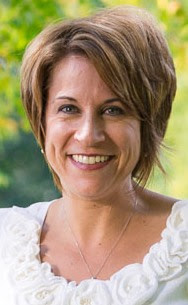By Marisa Geitner, president and C.E.O.
"Without intentional activity people with disabilities are more likely to belong to a smaller world, engage in a smaller world, and be in devalued roles, more likely to have fewer choices."- John O'Brien
As disability support services have
evolved, models have been created in a manner that separates individuals from
the general community, making it necessary for support providers to
consistently be seeking ways that help one gain experience "in the
community." This has also created an unintended consequence of
members of the general community assuming that since individuals have paid
support, they themselves need not be concerned about how to welcome those with
disabilities into their community circles. They might also assume that those
with support needs require separation from community in order to
be successful.
Having a home within a community or attending
a program within a community has been a wonderful step toward full inclusion. Our
next step is simply to share ordinary places. That may mean establishing some
patterns that are frequent enough it might allow for new relationships to
develop. Some may join others at the town diner for the Friday night fish
fry or volunteer consistently for events offered through their church or
local fire department. How about connecting with a local walking club and
developing relationships as you enjoy exercise and fresh air? Do
you enjoy coffee while people watching every Monday at the local
coffee shop? Ever thought about ushering at a local theater?
Seek experiences you'll enjoy. And remember,
predictability and frequency increase the likelihood that new relationships
will develop by sharing time in ordinary places. It is true
and lasting relationships that combat isolation and exclusion.
Find some time to extend yourself to enjoy
the community that you are a part of today.















